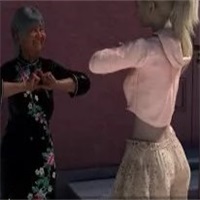Video game piracy has entered a new era with the Japanese police arresting, for the first time, an individual accused of modifying Nintendo Switch hardware. According to NTV News and translated by Automaton, a 58-year-old man was apprehended on January 15 for allegedly breaching the Trademark Act. He is suspected of altering Switch consoles to play pirated games and then selling these modified units.
The process involved welding modified components onto the circuit boards of second-hand consoles, enabling them to run unauthorized games. The accused is said to have loaded 27 pirated games onto these devices and sold each modified console for ¥28,000 (approximately $180). He has confessed to the charges and is under further investigation for potential additional violations, as per police statements.
Nintendo, a company long embroiled in the fight against piracy, took significant legal action in May 2024 by issuing a takedown request for 8,500 copies of the Switch emulator Yuzu. This followed the emulator's removal two months earlier. In its lawsuit against Yuzu's creator, Tropic Haze, Nintendo highlighted that their flagship title, The Legend of Zelda: Tears of the Kingdom, had been pirated over a million times before its official release in 2023.
Such legal measures are increasingly common as companies strive to combat piracy. Nintendo's successful lawsuits include one against the game file-sharing site RomUniverse, which was ordered to pay $2.1 million in damages in 2021 and another $12 million in 2018. Additionally, Nintendo blocked the GameCube and Wii emulator Dolphin from being released on the PC gaming platform Steam.
This week, a patent lawyer representing Nintendo shed light on the company's stance on piracy and emulation. Koji Nishiura, Assistant Manager of Nintendo's Intellectual Property Division, commented, “To begin with, are emulators illegal or not? This is a point often debated. While you can’t immediately claim that an emulator is illegal in itself, it can become illegal depending on how it’s used.” This statement underscores the complex legal landscape surrounding emulation and piracy.















